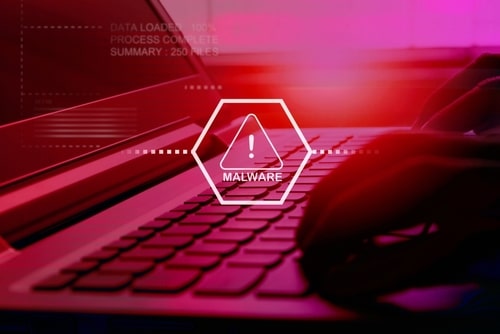Understanding malware: What it is and how it infects your devices
Malware, short for malicious software, refers to any software intentionally designed to cause damage to a computer, server, client, or network. Cybercriminals use malware to steal sensitive data, disrupt operations, or gain unauthorized access to systems. You can get infected by malware through various means, including downloading infected files, visiting compromised websites, opening malicious email attachments, or installing harmful applications.

Types of malware
Email malware distribution
Email malware distribution involves sending malicious code via email attachments. Usually these can come via phishing attacks that use social engineering tricks to dupe you into clicking the attachment. If they double-click on the infected attachment, the malware runs, infects the computer, and uses the compromised device as part of a botnet to send more malware to others.
Fake antivirus malware
Also known as scareware, fake antivirus malware reports nonexistent threats to scare victims into installing malicious software or paying for unnecessary cleanup tools. These are typically installed through malicious websites and appear as fake online scans.
Mobile phone malware
Mobile phone malware is designed specifically to target smartphones instead of computers. This type of malware can enter your phone through malicious browser apps, SMS phishing attacks and file-sharing services. Once installed, it can steal data, track your activities, or cause other harm to your device.
JBOH attack
A JBOH (JavaScript-Binding-Over-HTTP) attack targets Android phones, allowing attackers to execute malicious code on compromised devices. This typically occurs through compromised or malicious mobile apps, leading to unauthorized access and potential data theft.
Document malware
Document malware exploits vulnerabilities in programs used to open documents like Word, Excel, and PDF files. To activate the malware, all that is required is for a user to open an infected document on their computer. This can lead to the execution of malicious code and potentially severe consequences.
Boot sector malware
Boot sector malware targets the program that allows your computer to start and run the operating system. By replacing this program, it hides itself from detection by overriding the code intended to show what programs are running on the computer.
Keylogging
Keylogging is the process of secretly recording keystrokes by an unauthorized third party. This is often used in malware to steal usernames, passwords, credit card information, and other sensitive data. Keyloggers can be installed through malicious downloads, email attachments, or compromised websites, and they operate silently in the background, making them difficult to detect.
Internet worm
An internet worm is a type of malware that replicates across the internet or local networks. Unlike viruses, which require a carrier program or file to spread, worms can replicate themselves independently. Once a worm infiltrates a network, it can spread rapidly, causing widespread damage and disruption by consuming bandwidth and overloading systems.
Protecting yourself from malware
To protect yourself from malware, it's crucial to maintain strong cybersecurity practices. Use reputable cybersecurity software, keep your systems and applications updated, avoid clicking on suspicious links or downloading unknown files, and be cautious with email attachments.
One effective solution to protect your devices is Guardio. Guardio uses advanced AI technology to identify and block threats like phishing attempts, malicious websites, and other online scams before they can reach your device. By using Guardio, you can enhance your browsing safety and protect your sensitive information from cyber threats.
I like the reassurance I have that Guardio is checking up on things for me! They have prevented me from opening some links that were suspicious before I opened them! That was awesome! They also have removed some issues for me. Definitely worth the money!
Dorothy Carlisle
FacebookI have been so impressed with the…
I have been so impressed with the timely transition to a new device without any fuss. Your notifications are timely and, dare I say, fun to read. Nice that you have a thread of humor! Thanks.
Michelle Allen
Trustpilotwas having continuous ad popups
I was having continuous ad popups. Guardio took care of them all. I'm so pleased with this service! I'm also alerted about possible threats while surfing. I have every intention of continuing with Guardio.
Tessa 782
Trustpilot